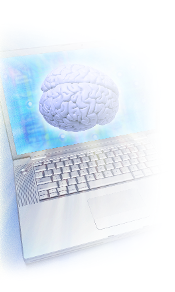1) Evidence-Based Cognitive Rehabilitation: Updates Review of the literature from 1998 through 2002
Cicerone, K.D., Dahlberg, C., Malec, J.F., Langenbahn, D.M., Felicetti, T., Kneipp, S., Elimo, W., Kalmar, K., Giacino, J.T., Harley, J.P., Laatsch, L., Morse, P.A., Catanese, J.
Archives of Physical Medicine and Rehabilitation, 87 (8), 1681-92 (2005)
This update to the previous evidence-based recommendations of the Brain Injury Interdisciplinary Special Interest Group of the American Congress of Rehabilitation Medicine involved a meta-analysis study which reviewed 118 publishes articles. This study found substantial evidence supporting training for apraxia after left hemisphere stroke, visual spatial rehabilitation for deficits associated with visual neglect after right hemisphere stroke and cognitive rehabilitation for people with traumatic brain injuries. This article recommended that future research should move beyond the simple question of whether cognitive rehabilitation is effective (as this has been clearly demonstrated) and examine therapy factors and patient characteristics that optimize the clinical outcomes of cognitive rehabilitation.
2) Evidence-Based Cognitive Rehabilitation: Recommendations for Clinical Practice
Cicerone, K.D., Dahlberg, C., Kalmar, K., Langenbahn, D.M., Malec, J.F., Bergquist, T.F., Felicetti, T., Giacino, J.T., Harley, J.P., Harrington, D.E., Herzog., J., Kneipp, S., Laatsch, L., Morse, P.A.
Archives of Physical Medicine and Rehabilitation, 81 (12), 1596-1615 (2000)
Over 95% of rehabilitation facilities who serve individuals with brain injuries and strokes provide cognitive rehabilitation. This landmark, meta-analysis study, which reviewed 171 published articles, found compelling evidence of the effectiveness of cognitive rehabilitation for the remediation of attention, memory, functional communication and higher level executive skills. The article provides specific, evidence-based recommendations for cognitive rehabilitation to help guide clinicians in their work.
3) Rehabilitation of Persons with Traumatic Brain Injury
From the NIH Consensus Statement, Volume 16, Number 1, October 26-28, 1998
"Cognitive exercises, including computer-assisted strategies, have been used to improve specific neuropsychological processes, predominantly attention, memory, and executive skills. Both randomized controlled studies and case reports have documented the success of these interventions using intermediate outcome measures. Certain studies using global outcome measures also support the use of computer-assisted exercises in cognitive rehabilitation."
(For a copy of the full NIH Consensus Statement, call 1-888-NIH-CONSENSUS [888-644-2667])
4) Computerized Errorless Learning-based Memory Rehabilitation for Chinese Patients with Brain Injury: A Preliminary Quasi-experimental Clinical Design Study
Dou, Z.L., Man, D.W., Ou, H.N., Zheng, J.L., Tam, S.F.
Brain Injury, 2006 Mar; 20(3): 219-25
A computerized cognitive rehabilitation approach for memory enhancement with TBI patients was found to be similar in its effectiveness when compared to a therapist directed cognitive rehabilitation memory training program. Both treatment approaches showed a significant improvement in memory skills after training when compared to a no treatment control group.
5) A Rehabilitative Program for Central Executive Deficits after Traumatic Brain Injury
Serino, A., Ciaramelli, E., Di Santantonio, A., Ladavas, E.
Brain and Cognition, 2006 Mar; 60(2): 213-4
This study looked at TBI patients with working memory problems and used a cognitive rehabilitation treatment program to specifically train them to improve their working memory skills. The treatment group was compared to other TBI patients who had processing speed problems but did not have problems with their working memory abilities. The treatment group showed improvement in memory skills after undergoing the cognitive remediation therapy, while the control group did not show any improvement.
6) Beneficial Effect from a Cognitive Training Program on Children with Acquired Brain Injuries Demonstrated in a Controls Study
Van't Hoogt, I., Andersson, K., Bergman, B., Sejersen, T., Von Wendt, L., Bartfai, A.
Brain Injury, 2005 Jul; 19 (7): 511-518
Adolescents and children with attention and memory deficits after acquired brain injury were treated for about three hours per week for 17 weeks using cognitive training exercises. The control group participated in a freely chosen interactive activity for the same amount of time. Pre-and post-training assessments were made using a neuropsychological test battery. Improvements in sustained and selective attention, as well as in memory performance, were shown in the treatment group as compared to the control group.
